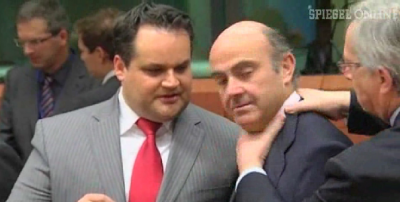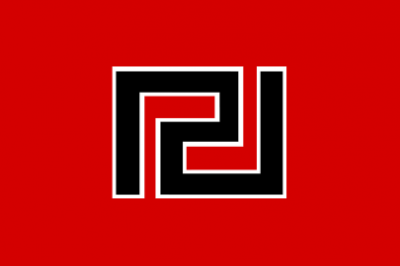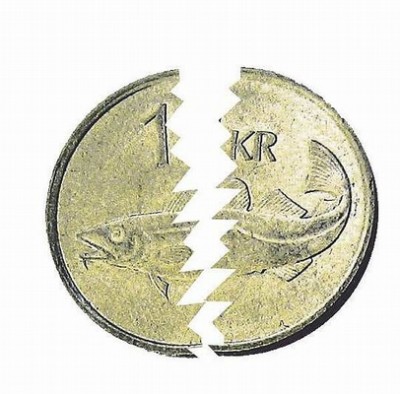About elections which delighted Europe, about some new ideas from the city on the Seine and about a bankruptcy that turned out to be a bankruptcy.
 A budget hatchet will be buried in Slovakia, and Robert Fico will be in charge of it. At least, this is what the last weekend’s election resulted in. Contrary to the election outcome in the year 2006, this time the results of the party SMER pleased the foreign countries. “Historic victory of left-wing, pro-European opposition party,” Austrian newspaper Der Standard announced good news for the Eurozone. Europe-related topics, at least for some time, won’t be the central point of governmental interests in Slovakia.
A budget hatchet will be buried in Slovakia, and Robert Fico will be in charge of it. At least, this is what the last weekend’s election resulted in. Contrary to the election outcome in the year 2006, this time the results of the party SMER pleased the foreign countries. “Historic victory of left-wing, pro-European opposition party,” Austrian newspaper Der Standard announced good news for the Eurozone. Europe-related topics, at least for some time, won’t be the central point of governmental interests in Slovakia.
Only Germans are slightly afraid of another Orban in the region.
Obviously, an upcoming election is improving brain performance of politicians, who then come up with more brilliant ideas. Nicolas Sarkozy, running for re-election, decided not to experiment and went for the campaign evergreens – nationalism and protectionism. He threatened to leave the Schengen if the EU doesn’t tighten the immigration policies. He also came up with an idea that European governments should buy mainly domestic products, regardless of their cost and quality. France is ready to take such a step, even unilaterally. The fact that the EU is one of three biggest exporters in the world, and millions of French have jobs thanks to other countries buying French products, doesn’t seem to bother him in his argumentation. The suddenly discovered euroscepticism of Sarkozy resulted in several politicians of the member states turning their support to his opponent Francois Hollande and they approve his solutions as the right approach.
The EU is going after the Spain’s throat. But is it just symbolic, or this gesture of  Jean Claude-Juncker meant something more?
Jean Claude-Juncker meant something more?
When it comes to Greece, Sarkozy considers the problem to be solved. He obviously doesn’t read Fiat Euro!
Not everything went according to someone’s initial hopes and according to ISDA (International Swaps and Derivates Association) the Greek bonds swap for lower value is an official bankruptcy, which means that holders of CDS for Greek bonds are entitled to their payment. Bonds will be sold in auction and the value difference will be cleared by activation of the CDS worth 3.2 bln dollar.
Does it seem few to you? It is only a tip of an iceberg. Besides the CDS, there are derivatives connected to the Greek debt amounting to 90 bln dollars. What will happen with them in the upcoming days and how it will influence Greek banks and international market, remains an open question.
On Thursday, IMF finally agreed on the loan of 28 bln dollars, which will be paid during the next four years. The second aid package for Greece can be thus finalized. In the first package, IMF granted a loan of 30 bln, out of which 20.3 bln were already used. EFSF will provide 109.1 bln, 48 bln out of which will be devoted to the recapitalization of the Greek banks. Repetition is the mother of learning, so let’s remind you that further EUR 30 bln were used for “sweetening” the ongoing bond swap and that Greece received further 5,5 bln as returned profit from Greek bonds held by the eurosystem members.
To sum up and underline, on one hand Athens got rid of the debt of over 100 bln, on the other hand it takes a new one for 130 bln.
There are more and more cases of Greek children, who are not able to participate in PE lessons because of the malnutrition. Such cases don’t go  without reflection in the Greek society. According to a pre-elections poll from the beginning of March, the ruling socialist party would have only 11%, the previously marginal ultraleftist SYRIZA – 12%, Stalinist KKE – 11% and neo-nazi Golden Dawn – 3,5%. There would be five, instead of nine parties in the Greek Parliament. Election will probably take place at the end of April 2012. All we can say: “Where did comrades from the EU make a mistake?”
without reflection in the Greek society. According to a pre-elections poll from the beginning of March, the ruling socialist party would have only 11%, the previously marginal ultraleftist SYRIZA – 12%, Stalinist KKE – 11% and neo-nazi Golden Dawn – 3,5%. There would be five, instead of nine parties in the Greek Parliament. Election will probably take place at the end of April 2012. All we can say: “Where did comrades from the EU make a mistake?”
And here comes the biggest joke. The new Greek bonds are the same junk as the ones, for which they were exchanged. Their value on a grey market (pricing before the actual exchange and real possibility to trade them) was between 17 and 28 cents for euro. This means the same yield as the old junk bonds had in the Autumn 2011. For those who still don’t understand – yes, financial markets are already betting on another Greek default.
In spite of the second package, there are a growing number of people who openly talk about Greece leaving the Eurozone. Lately the Bavarian Minister of Economy Martin Zeil joined them.
ECB and its President Mario Draghi started to fear inflation only a few days after they released half a billion of new euro in the world. Fortunately, the European economy managed to become stabilized finally. Just a pity that it stabilized at the level of -0.1% GDP.
Not only the Eurozone is worried. Last month Fitch, and now Moody’s suggested that Great Britain may lose its AAA rating.
 We already mentioned the possibility that Iceland will adopt Canadian dollar as its currency in the previous issue of Fiat Euro! Prime Minister Johanna Sigurdardottir said that Iceland has only two possibilities – join the EU and adopt euro, or adopt another currency. Currently only 26.3% of Icelandic voters support joining the EU, but there is also an option to adopt euro without joining the Union, as Montenegro did. It would be totally the opposite of what some say about Greece – first a bankruptcy, then adopting the euro.
We already mentioned the possibility that Iceland will adopt Canadian dollar as its currency in the previous issue of Fiat Euro! Prime Minister Johanna Sigurdardottir said that Iceland has only two possibilities – join the EU and adopt euro, or adopt another currency. Currently only 26.3% of Icelandic voters support joining the EU, but there is also an option to adopt euro without joining the Union, as Montenegro did. It would be totally the opposite of what some say about Greece – first a bankruptcy, then adopting the euro.
Let’s conclude in an optimistic way. Exceptionally, public authorities also have good ideas. For example, Ukrainian border guards decided to provide female employees with makeovers with the help of professional stylists before the football Euro 2012. If each official, who pushes you around, at least looked good, the world would be a happier place!
Have a nice weekend without bullying!
Martin Vlachynský


















No comments
Be the first one to leave a comment.